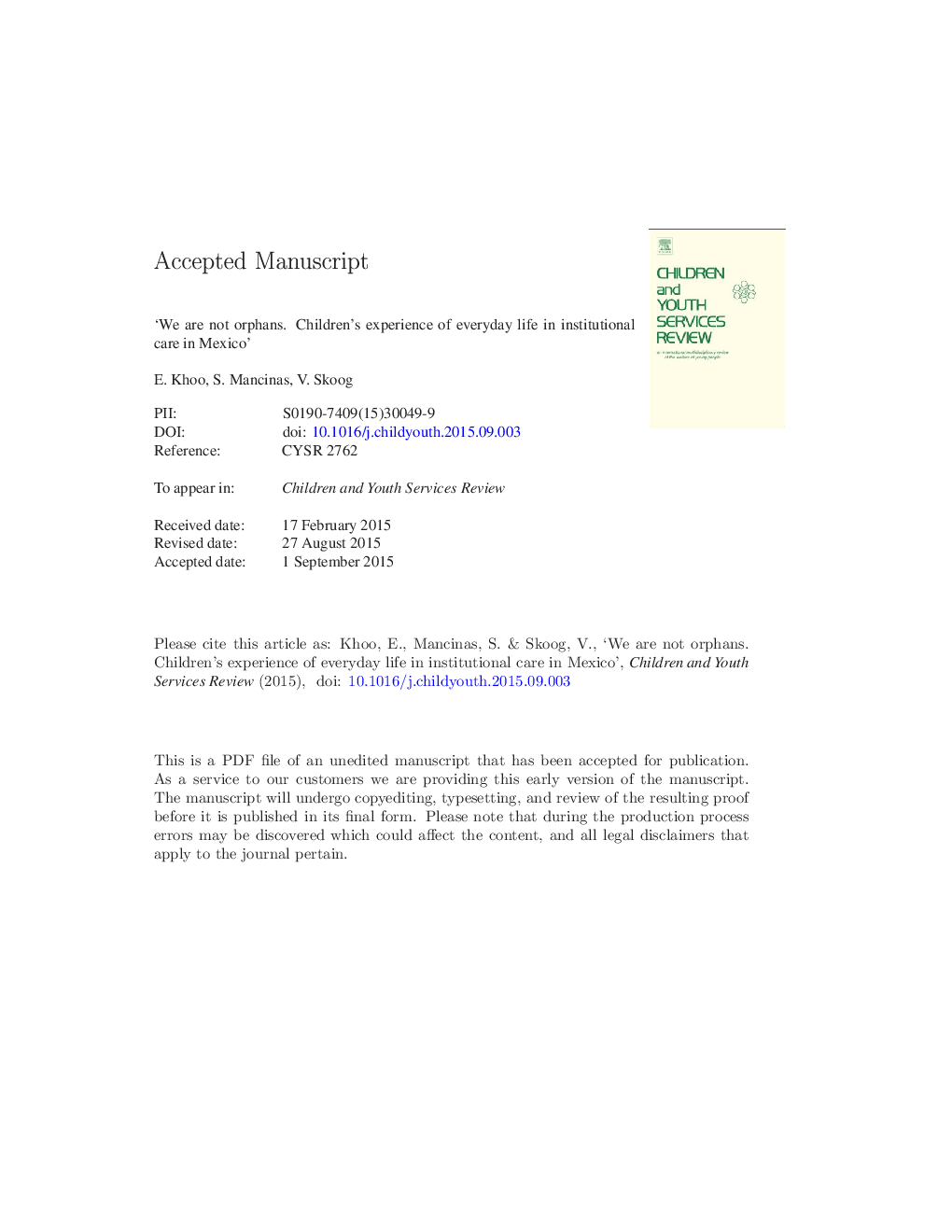| Article ID | Journal | Published Year | Pages | File Type |
|---|---|---|---|---|
| 6833873 | Children and Youth Services Review | 2015 | 24 Pages |
Abstract
In Mexico, institutional care is the most widely used out-of-home placement resource for children who have been either abandoned by their parents or removed from their families to protect them from harm. Currently there are over 29,000 children and adolescents placed in approximately 725 institutions in Mexico. However, little is known about the perspectives of young people about their lives in this setting. We set out to explore young people's descriptions of their lived experience of everyday life in one institutional care setting in Mexico, with a focus on their daily activities and their relationships to significant others. Multiple qualitative methods (adapted Photovoice, mapping and focus groups) were used by researchers from both Mexico and Sweden. In this paper, we explore and analyze their experiences of being 'almost home' and living in an 'almost family'. Life in the institution could be characterized as a highly structured, total institution wherein young people looked for ways to take control over times and places. It was safe but not quite home. Life was also strongly connected to stigma. Although in long-term placements, they refused to be labeled 'orphans'. The stigma of being called orphans and living in the confines of the institution was countered by the young people's descriptions of importance of feeling safe, being adequately supported and cared for, having a sense of comfort and normality where they are living, and having emotional connections to those they live with. Being listened to and having a say in decisions related to their lives were also strongly recurrent themes in our study. This paper concludes with a discussion of implications for practice with children and youth in institutional care.
Related Topics
Health Sciences
Medicine and Dentistry
Perinatology, Pediatrics and Child Health
Authors
Evelyn Khoo, Sandra Mancinas, Viktoria Skoog,
